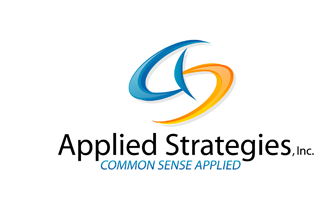To Your (Emotional) Health The Cure for Terminal Seriousness
|
||
|
|
Focused thinking on a client matter is a critical element of "focused client service," and the prevalence of negative emotion has a direct and disruptive impact on such thinking. |
Legal organizations are prime incubators for stress. Whether it is from the evolution of the profession or the change in clients' value standards - that combination of service, quality, speed and price they seek - or the attitudinal differences between the generations of professionals, stress may well be the only constant in our ever-changing environments. All of these office-centric factors, of course, are exacerbated by personal stress - child, elder or spouse care. This increasingly stressful environment is not the sole domain of professional services firms but rather is germane to many of your clients' organizations. Many of these clients have taken to understanding and embracing the importance of emotional intelligence (EI) in their leaders. The premise of the focus on El is that emotional skills play a crucial role in helping individuals cope with the stresses of everyday life. One expert, Daniel Goleman, says that emotional intelligence includes the following five distinct skill areas:
Savvy managers and corporate executives understand that emotional intelligence affects their organization's success. They are investing money in training to raise the EI of existing leaders. They seek and test for these skills in new hires. Will professional service firms follow suit? Probably not, given the flatness of the organizational structures and the self-induced perceptions of what professionalism is (and is not). Legal organizations are not likely to invest in this approach to stress management. Nevertheless, this does not mean that law offices - and their managers - cannot learn from one of the key tenets of this approach: "Humor is especially effective in substituting a positive emotion for a negative one." This approach is particularly important in a professional services firm where sustained complaining and negative emotion can directly affect productivity. Focused thinking on a client matter is a critical element of "focused client service," and the prevalence of negative emotion has a direct and disruptive impact on such thinking. If "innovative client solutions" is your firm's mantra, there has been research since 1950 documenting the relationship between humor and creativity. Social scientists have tracked where people scored higher on creativity tests after being exposed to humor. However many firms have defined professional services and professionalism by levels of intensity, seriousness and compensation. While management guru David Maister was not speaking to this specific issue in a recent book, something he wrote applies here: "Professionalism is an attitude not a set of competencies." Too often, the single largest inhibitor to humor in many of our offices is that it is interpreted as not taking our work seriously. However, such an approach results in exacerbated levels of stress and leads to firms developing 'terminal seriousness:"
Paul McGhee, Ph.D. (www.LaughterRemedy.com), has developed this list of how humor and laughter help cope with stress:
Take a lighter attitude toward yourself. Look for and share the humor in your everyday situations. Avoid adopting negative attitudes of others. These tips will not prevent you from maintaining high levels of professionalism, competence and innovative client service. And, they may make you want to come to work in the morning and create a less stressful environment. |

